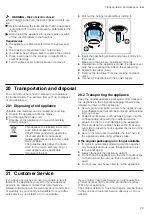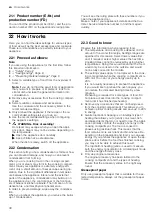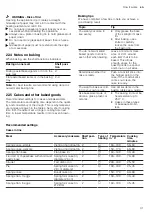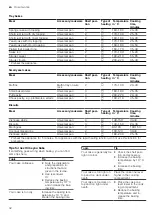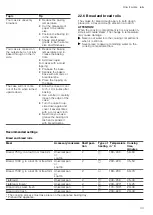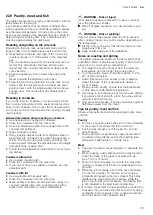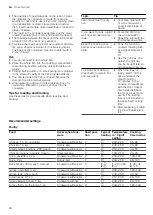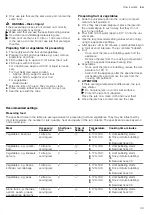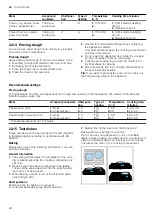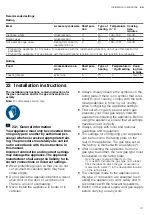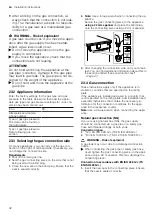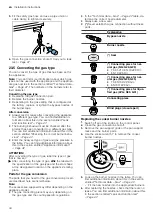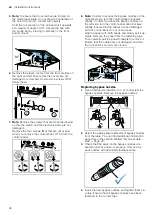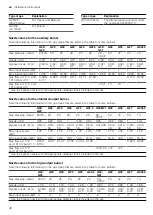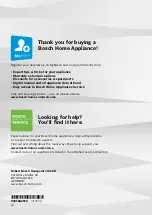
Installation instructions
en
43
2.
Secure the gas connecting piece to the appliance
using a 22 mm spanner
and place the connecting
piece into the connecting piece using a 24 mm
spanner.
3.
Place the new seal into the gas pipe or safety gas
hose. Ensure that the seal is seated correctly.
4.
Secure the connecting piece using a
24 mm span-
ner
. Use a 24 mm spanner to place the threaded fit-
ting of the gas pipe or safety gas hose on the con-
necting piece and tighten it firmly.
5.
Open the gas connection shut-off. Carry out a leak
test →
Connection in accordance with EN 10226 R½ (TS
61-210 EN 10226 R½)
1.
Insert the new seal in the connecting piece. Ensure
that the seal is seated correctly.
2.
Secure the gas connecting piece to the appliance
using a 22 mm spanner
and place the connecting
piece into the connecting piece using a 24 mm
spanner.
3.
Secure the connecting piece using a
24 mm span-
ner
. Use a 24 mm spanner to place the threaded fit-
ting of the gas pipe or safety gas hose on the con-
necting piece and tighten it firmly.
4.
Open the gas connection shut-off. Carry out a leak
test →
.
Liquefied gas connection (LPG)
If you use liquefied gas (LPG), establish the gas con-
nection via a gas hose or a fixed connection.
Observe the specific guidelines for each country.
If you are using a gas hose, observe the following:
¡
Use a safety gas hose or a plastic gas hose with a
diameter of 8 or 10 mm.
¡
Secure the hose to the gas connection using an ap-
proved connecting device, e.g. a hose clamp.
¡
The hose must be short and completely leak-tight.
The hose must not be longer than 1.5 m. Observe
the applicable guidelines.
¡
Replace the gas hose once a year.
Connection with the gas hose
1.
Insert the new seal in the connecting piece. Ensure
that the seal is seated correctly.
2.
Secure the gas connecting piece to the appliance
using a 22 mm spanner
and place the connecting
piece into the connecting piece using a 24 mm
spanner.

